Recently, with the help of Carbon Newture, Wonder Grip (CHINA).Co., Ltd.(hereinafter referred to as "Wonder Grip") obtained the industry’s first ISO 14068 organizational carbon neutrality certificate, along with four ISO 14068 product carbon neutrality certificates for the "Wonder Grip"® brand series.
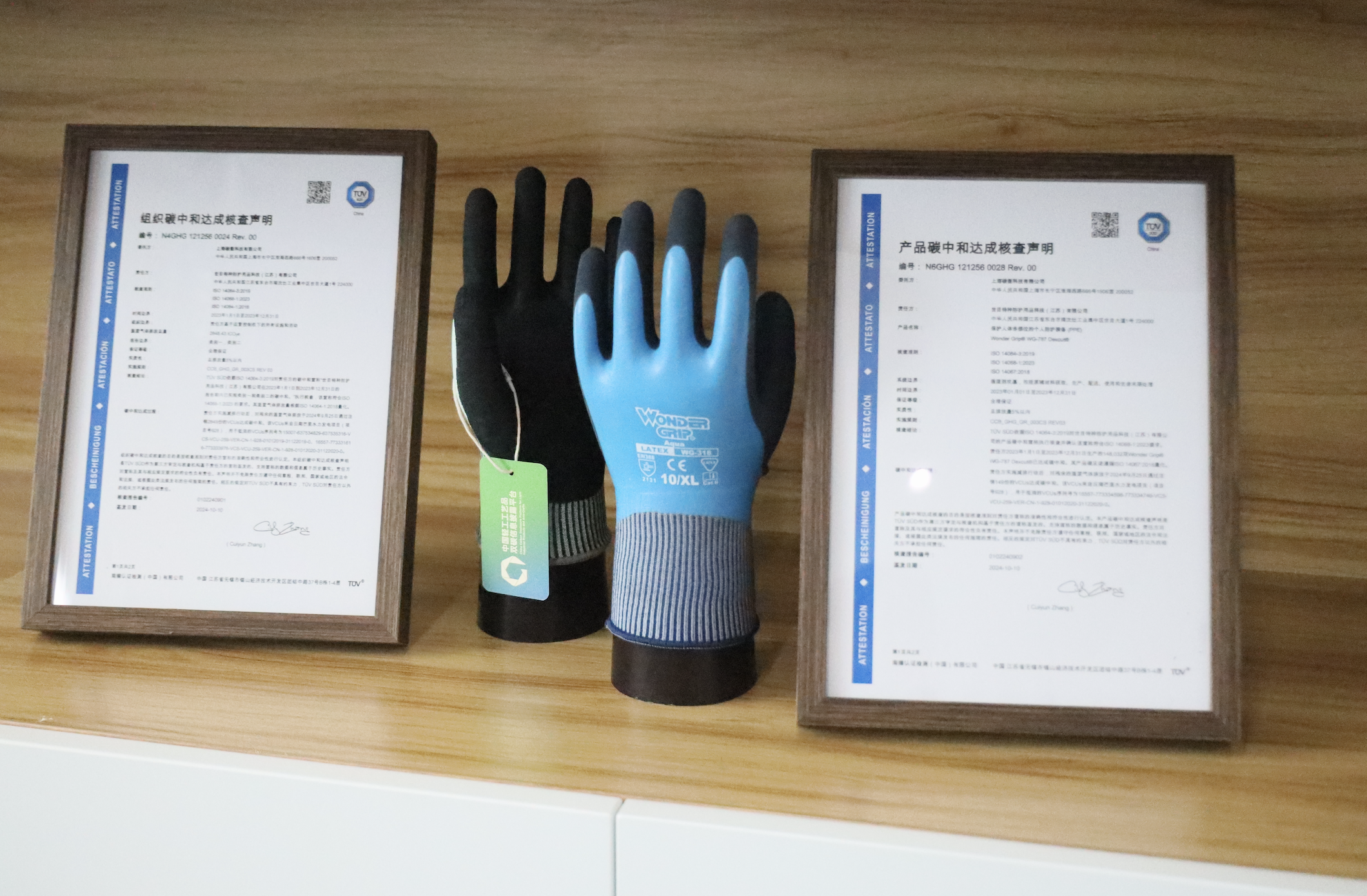
ISO 14068 is an internationally recognized, up-to-date, and stringent carbon neutrality standard that requires substantial emis1sion reduction actions and results to achieve carbon neutrality certification.
Shimu Company has achieved carbon reduction through measures such as technological transformation and the adoption of clean energy. In 2023, the company's carbon emissions at the organizational level decreased by 11% compared to the baseline year of 2022, and the unit carbon emission intensity of four products also dropped by 14%. Successfully obtaining these five carbon neutrality certificates marks a significant step for Shimu Company on its path to leading high-quality development through low-carbon transformation.
01 SHIMU Global Vision,World Attention
"I believe the era in which Chinese brands stand shoulder to shoulder with international giants has arrived. 'Low carbon' and 'quality' are the 'wings' for green and high-quality Chinese products going global, and the Wonder Grip brand protective gloves deserve the world's attention."
— Dai Guoda, Chairman of Wonder Grip
Shimu originated in the early 1990s and has nearly 20 years of experience in the hand protection field. It is dedicated to producing hand protection products with features such as cold resistance, chemical resistance, cut resistance, and arc flash protection. With its own brand "Wonder Grip", the products are primarily sold in markets across Europe, the United States, and Japan.
"Redefining Hand Protection"—this is Wonder Grip's slogan and the original mission of every Shimu team member: to provide better hand protection for workers in various industries.
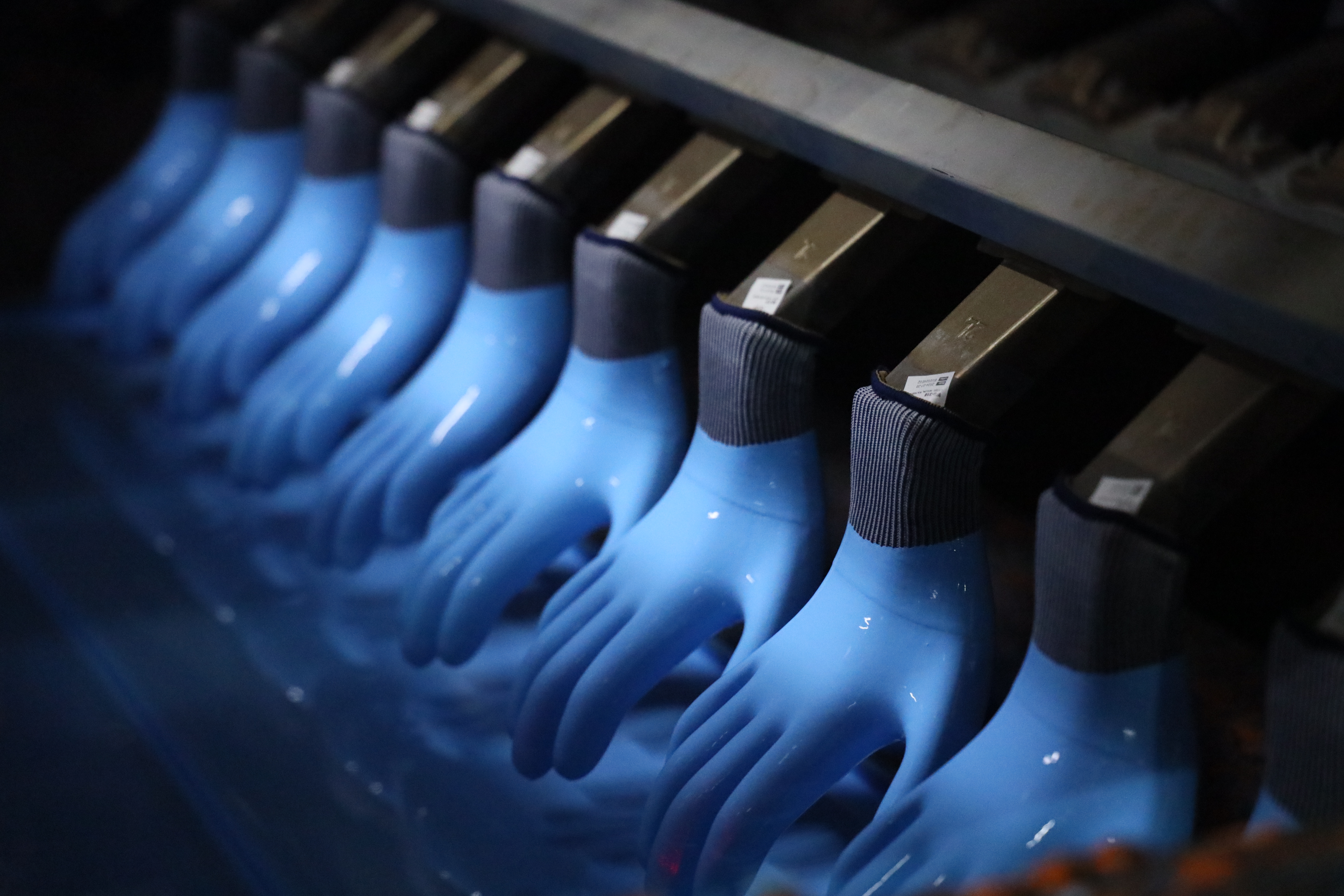
In the context of carbon peaking and carbon neutrality, Wonder Grip is not only producing the "second skin" for humans but also aims to minimize its environmental impact through energy-saving and carbon reduction measures, helping to build a "skin that resists climate change" for the Earth.
02 True carbon neutrality requires real emissions reductions
ISO 14068 is an internationally recognized, up-to-date, and the strictest mainstream standard, aligning more closely with the current trends in carbon neutrality development. It will replace the previously widely adopted PAS 2060 carbon neutrality standard. Compared to PAS 2060, ISO 14068 has stricter carbon neutrality management levels and conditions—emission reductions must occur before offsetting. This means that companies cannot achieve carbon neutrality solely through carbon offsets, which aligns with the current consensus both domestically and internationally: true carbon neutrality requires substantial emission reductions as a prerequisite. <<Click to learn more about the ISO 14068 carbon neutrality standard details.
Carbon Neutrality Hierarchy requires that carbon neutrality measures be implemented in the following priority order: 1) Reduce greenhouse gas emissions within the entity boundary (emission reduction); 2) Enhance greenhouse gas removal within the entity boundary (enhanced removal); 3) Offset residual greenhouse gas emissions (offsetting). That is, emission reduction and enhanced removal (emission reduction and removal) must occur and take precedence over offsetting. Furthermore, over time, the amount of carbon credits used to offset residual greenhouse gas emissions should gradually decrease. |
For Wonder Grip, choosing ISO 14068 for carbon neutrality certification is a natural decision.
Firstly, the concept of sustainable and green low-carbon development is deeply rooted in the company's DNA. Since its establishment, Wonder Grip has adopted "continuous improvement and sustainable operation" as its highest business principle, constantly seeking opportunities to reduce the environmental impact of its products at every stage, from raw material procurement and product design to manufacturing, packaging, and customer service. With the introduction of domestic carbon peaking and carbon neutrality targets, the close issuance of carbon policies, and international demands for low-carbon products, Wonder Grip is actively taking measures to address climate change in line with the times.
Secondly, Wonder Grip's emission reduction achievements can withstand scrutiny, which is why it has chosen to adopt the currently internationally recognized and strictest carbon neutrality standard for verification.
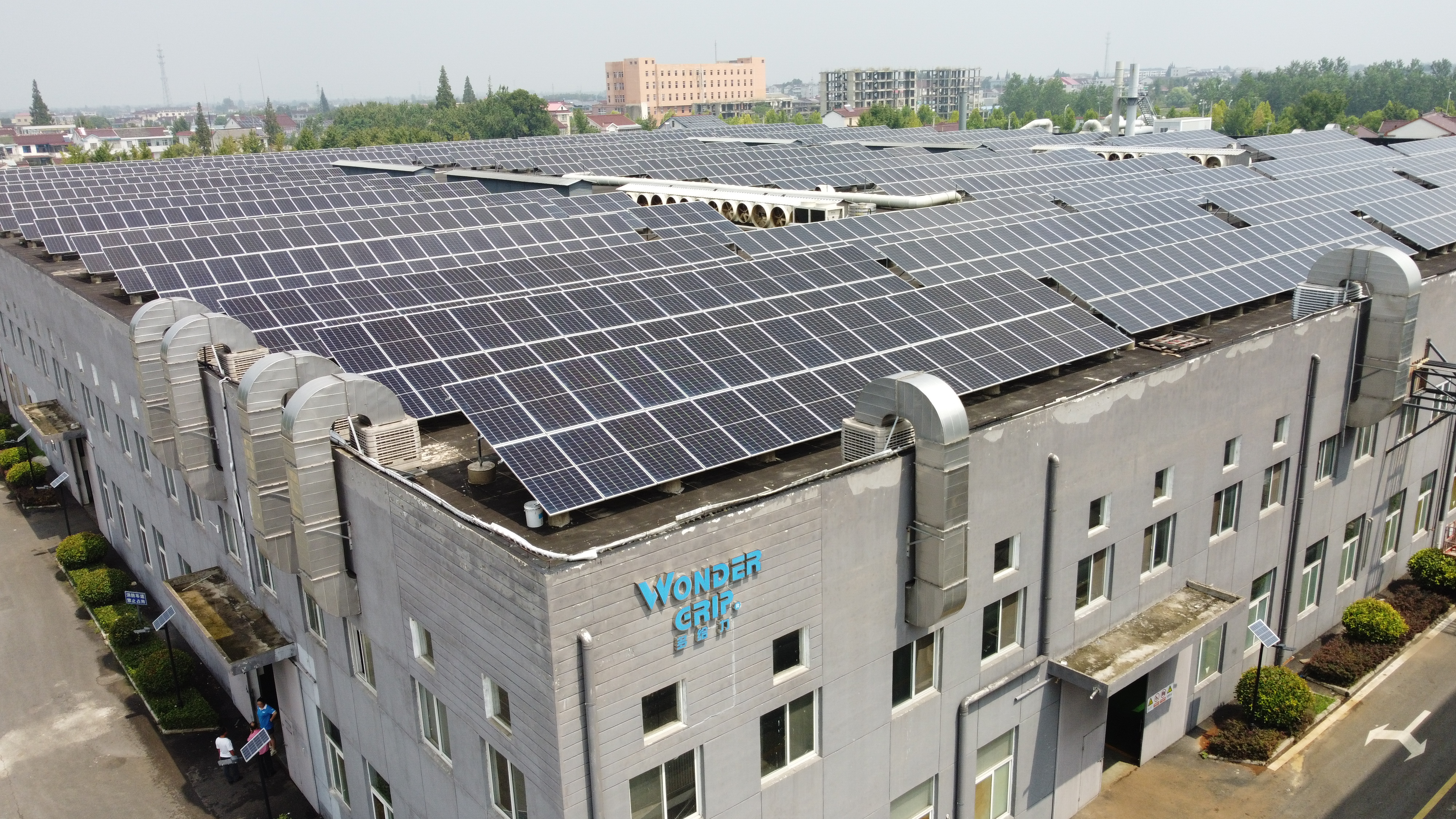
The roof of the Wonder Grip is covered with photovoltaics
Wonder Grip not only focuses on adjusting its energy structure by installing photovoltaic systems on the rooftops of its factories (with an annual power generation of approximately 1.6 million kilowatt-hours, covering nearly 80% of its electricity consumption), but also continuously enhances energy utilization efficiency through technological upgrades, reducing energy consumption per unit product. The company has implemented equipment upgrades on a total of fifteen production lines. Additionally, in 2023, Wonder Grip replaced all diesel forklifts in the factory with electric ones.
As a result of these energy-saving and carbon reduction measures, the company achieved an 11% reduction in organizational carbon emissions in 2023 compared to the baseline year of 2022, while the unit carbon emission intensity of four products decreased by 14%. With the assistance of Carbon Newture, Wonder Grip obtained an internationally recognized organizational carbon neutrality certificate issued by the authoritative third-party agency TÜV SÜD, as well as product carbon neutrality certificates for its four flagship products: Wonder Grip® WG-355 Dual, Wonder Grip® WG-787 Dexcut®, Wonder Grip® WG-318 Aqua, and Wonder Grip® WG-338 Thermo Plus.
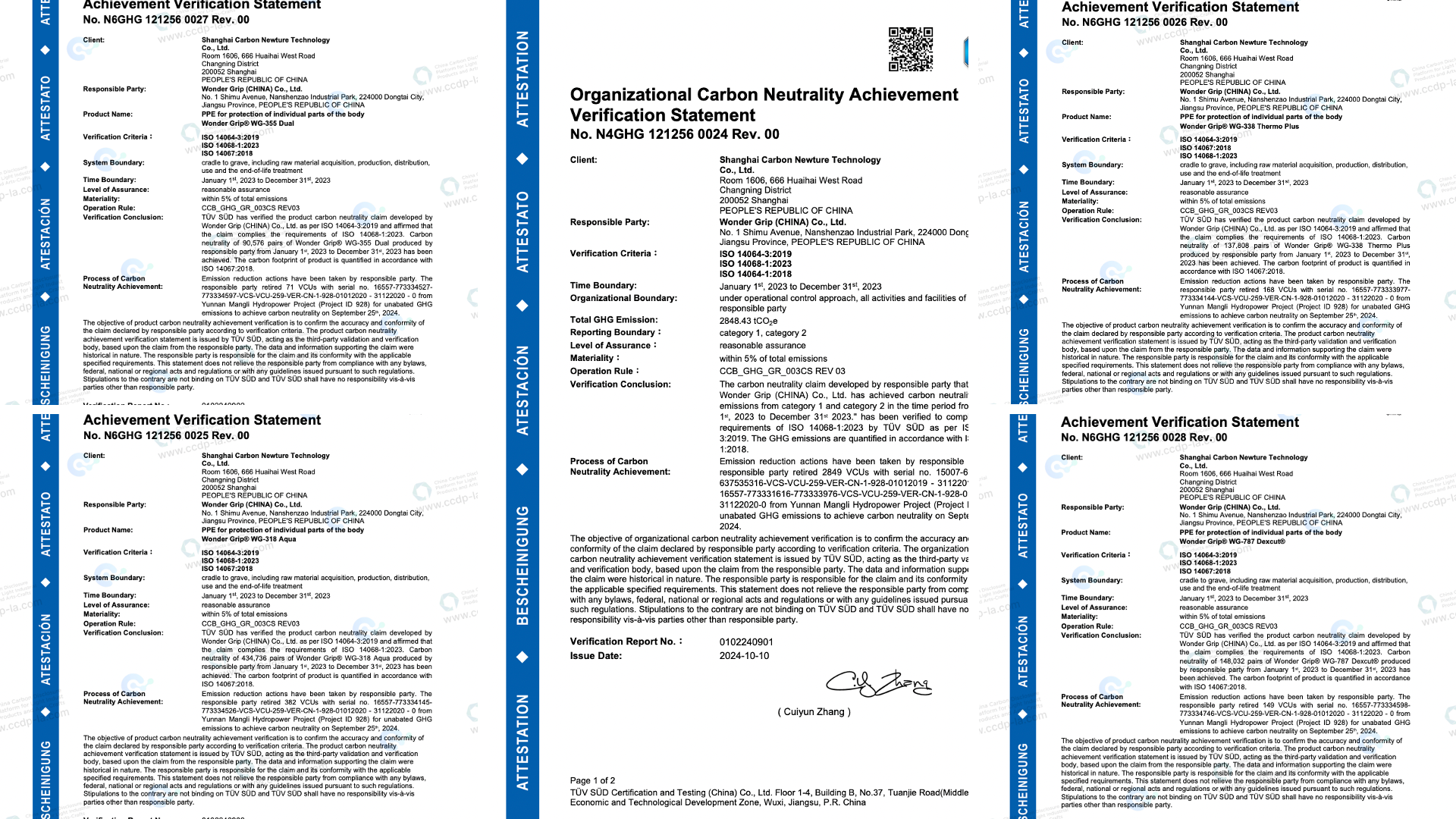
Based on the ISO 14068 standard, Wonder Grip obtained the carbon neutrality certificate of the organization and products
This not only demonstrates Wonder Grip's firm commitment and concrete actions in leading low-carbon transformation for high-quality development, but also sets a benchmark for green development in the entire special protective equipment industry. It encourages and motivates upstream and downstream enterprises in the supply chain to actively respond to climate change.
03 Wonder Grip collaborates with partners across the supply chain to reduce carbon emissions
In recent years, countries and regions such as Europe have imposed higher demands on product carbon footprints and eco-design, making environmental protection and low-carbon attributes new competitive factors in the market, alongside product performance and pricing. By calculating product carbon footprints, companies can understand the sources of their carbon emissions, facilitating subsequent management and reduction efforts, thereby establishing a low-carbon advantage for products and even brands, enhancing market competitiveness. As a result, Wonder Grip considers low-carbon development a crucial factor in product research and development.
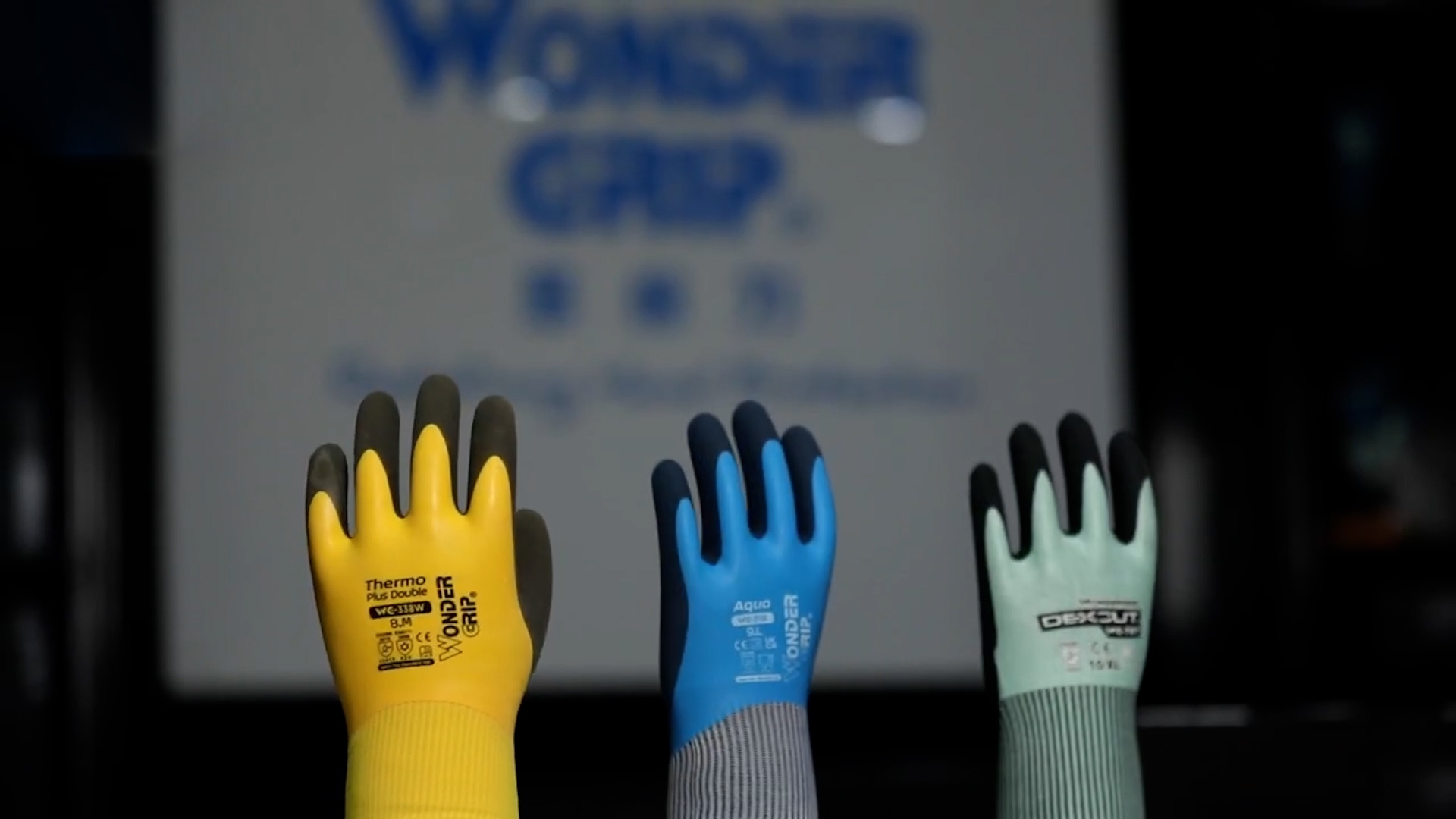
From the perspective of the industry and supply chain, the production of nearly all tangible goods involves collaboration between upstream and downstream partners.
Dai Menglu, Assistant General Manager of Wonder Grip, stated: "For instance, in the production of our gloves, upstream suppliers provide materials like latex, nylon, and polyester fibers. Through calculating the product's carbon footprint, we have discovered that the carbon footprint of upstream materials constitutes a significant portion of the total. If our upstream suppliers can provide raw materials with a lower carbon footprint, it could significantly reduce the carbon footprint of our glove products right from the source. Therefore, achieving a low carbon footprint for products requires the joint efforts of all enterprises along the entire supply chain. We look forward to our upstream partners working hand in hand with us to reduce carbon emissions, and we will leverage our influence to encourage our upstream and downstream partners to join in these efforts."